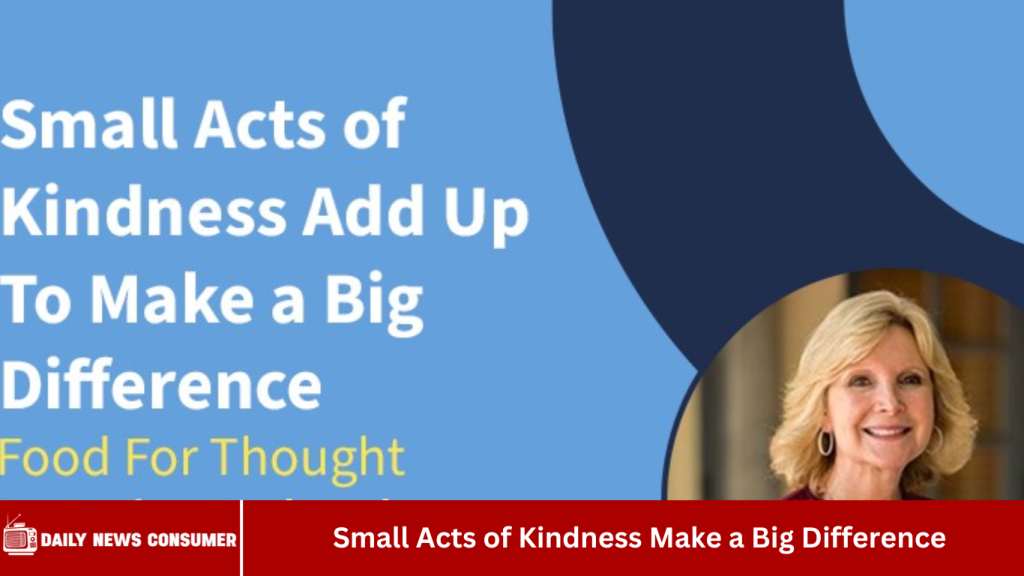Hi everyone! How are you all doing? Welcome to www.dailynewsconsumer.com! Kindness operates much like a stone thrown into a pond, creating ripples that extend far beyond the initial point of contact. When someone experiences an act of kindness, they’re more likely to pass it on, fostering a chain reaction of goodwill. This phenomenon, often referred to as the “kindness ripple effect,” underscores how one considerate act can influence countless others .
Everyday Acts That Matter
Incorporating kindness into daily life doesn’t require monumental efforts. Here are some simple yet impactful actions:
- Holding the Door Open: A basic gesture that shows respect and consideration.
- Offering Genuine Compliments: Acknowledging someone’s efforts or appearance can boost their confidence.
- Writing Thank-You Notes: Expressing gratitude reinforces positive relationships .
- Helping with Groceries: Assisting someone, especially the elderly or those with disabilities, can ease their burden .
- Donating Gently Used Items: Passing on items you no longer need can be invaluable to someone else.
- Planting Trees: Contributing to the environment benefits everyone .
- Volunteering Locally: Offering your time to community services strengthens communal bonds.
The Science Behind Kindness
Research consistently highlights the benefits of kindness:
- Mental Health: Engaging in kind acts releases endorphins, promoting feelings of happiness and reducing stress.
- Physical Health: Kindness can lead to lower blood pressure and improved heart health.
- Social Connections: Regularly practicing kindness enhances interpersonal relationships and fosters a sense of belonging.
Cultivating a Culture of Kindness
To embed kindness into our daily routines:
- Lead by Example: Demonstrate kindness in your actions, inspiring others to follow suit.
- Educate and Encourage: Teach younger generations the importance of empathy and compassion.
- Create Opportunities: Organize community events focused on charitable activities.
Frequently Asked Questions
Why are small acts of kindness significant?
Small acts, though seemingly minor, can have a profound impact on someone’s day, fostering positivity and encouraging a culture of compassion.
How can I incorporate kindness into my daily routine?
Simple actions like smiling at strangers, holding doors open, or offering compliments can make a difference.
Does kindness have health benefits?
Yes, engaging in kind acts can reduce stress, improve mood, and even benefit physical health by lowering blood pressure.
Can kindness influence workplace dynamics?
Absolutely. A culture of kindness in the workplace can enhance teamwork, boost morale, and increase overall productivity.
How can I teach my children about kindness?
Lead by example, encourage sharing, and discuss the importance of empathy and understanding.
Are there organizations that promote kindness?
Yes, numerous organizations worldwide focus on spreading kindness and encouraging community involvement.
Can kindness impact societal issues?
While kindness alone may not solve systemic problems, it fosters a more compassionate society, encouraging collaborative solutions and mutual respect.
Conclusion
While the world grapples with numerous challenges, the consistent thread that can weave communities together is kindness. By embracing and practicing small acts of kindness daily, we not only uplift others but also enrich our own lives, paving the way for a more compassionate and connected world.

